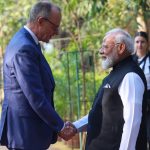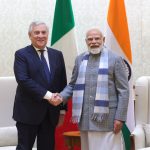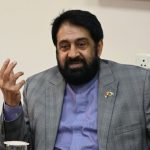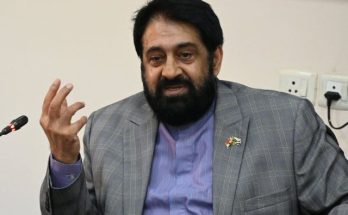Naipaul is Just Very Naive: Farah
 |
| Farah |
An exile from his country for most of his life, Somali novelist Nuruddin Farah writes to “keep his country alive” in his novels and to kindle anew the hunger for freedom and justice. Farah, one of the most gifted fiction writers from Africa, has narrowly missed getting the Nobel Prize for Literature many a times, but that has not stopped him from surprising his readers with yet another original novel.
Women are Farah’s muse and their struggle for liberation form a leitmotif that runs through all his writings, starting from his debut novel “From a Crooked Rib” (published in 1970) that earned him the title of a “male feminist.” Other recurrent themes in his writing are the dialectic between tradition and integration with modernity, the relationship between industrialized and developing countries and the pre-Islamic understanding of religion in Somalia.
I don’t think highly either of his writings or his journalistic abilities. I think he is just very naive. He is always playing to the gallery. He plays to the European gallery.
His novel trilogies, Variations on the Theme of an African Dictatorship (1980-1983) and Blood in the Sun (1986-1999) have an epic like sweep in which he unravels how political choices intersect personal lives in Africa. His novel, Maps, dramatizes the pain of cultural uncertainty in postcolonial world and Somalia’s violent history.
Farah speaks to Manish Chand about pet obsessions and themes that animate his fiction and his passionate love for India that goes back to the early Seventies when he was a student savoring pleasures of literature and philosophy in Chandigarh.
Q: Every writer has certain master-themes that recur in all his works. Are there any overarching themes that permeate your writings?
A: Freedom. Justice. Role of the individual in society. Women’s freedom – women as agents of change and their struggle against patriarchy, oppression, dictatorship and oppressive traditionalism – these are some of the themes that recur in my work.
Society can be deemed healthy and democratic only when the individual is equally happy and free within himself. When I wrote my first novel “From a Crooked Rib,” – I was a second year student in Chandigarh – a lot of readers, especially women, wrote to me imagining that I was a woman.
I firmly believe that the freedom of men and women are interlinked. Men ought to be liberated from themselves because unless men are free, women can’t be free. If one of them is in chains, the other one will be taken into chains as well.
Some women think that men are free to decide things for themselves. But they forget that societal pressures are equally strong for both men and women.
Q: You have this great India connection. How do you remember carefree days as a young man in Chandigarh?
A: I studied at Government College in Panjab University for four years. I was studying Indian philosophy and the English literature. I don’t know if I studied anything but I thoroughly enjoyed my college years.
That’s when I wrote my first novel – not “From A Crooked Rib.” I wrote a novel before that and called it To Make a Deal. I never published it. I don’t know where it is now.
Q What was this unpublished work about?
A: Traditions of society. The chains of traditional society and the individual trying to break it.
Q) This dialectic between tradition and modernity seems to be a leitmotif in your work..
A) I wouldn’t call it modernity. I would call it the integration of various strands of culture. There are some strands of the Indian culture you need not abandon. There are some strands that you must break like the practice of sati.
I am not saying everything has to be thrown out. There are certain traditions that are better left by wayside like women covering themselves in veil in villages. You can’t do that in a city like Delhi. If a woman is to think that she would not be able to sit next to a man who is not her husband in a bus in a city.
Q) What you are advocating is the relentless process of self-creation, being in a dialogue with tradition…
A) Yes, self-invention. Self-creation.
Q) You have overt political themes in your writings. You grapple with dictatorships in many of your novels….
A) I have written a trilogy on dictatorship: Sweet and Sour (1979), Sardines (1981) and Closed Sesame (1983) in which I have analyzed different forms of dictatorship in Africa and the possibility of democratic impulse emerging in the continent.
Q) How do you see the possibilities of genuine democracy in Africa?
A) Well, it’s coming. It’s coming slowly. The state of economy is such in many places in Africa that people can’t decide on their own. A hungry man can’t decide. A hungry man is easily corruptible. If the hungry man does not have any place to go to, he will go to anyone who will give him some cash.
What keeps democracy lively and active in India is the struggle of the educated Indian middle class, professional people who are not afraid to speak out the truth, and who are prepared to be left out.
The majority of progressive opinion is inherently middle class in character. The middle class is the backbone of the Indian democracy. Tied up with the presence of a huge middle class in India is the idea of secularism. India can survive only when it is secular. That is an advanced state we have not reached in Africa. The idea of a middle class is like one big extended family. You go to the same school, you have similar interests, there are so many things that bind you. If there is nothing that binds, democracy becomes difficult to achieve.
Q) Are you trying to say that Indian democracy is a model for Africa?
A) It’s a model. It’s a model we can’t yet attain. It may take another fifty years for Africa to reach that stage.
Q) Relations between India and Africa go back centuries. In post-modern, post-industrial societies, how do you see the India-Africa relationship evolving?
A) I am prejudiced in the sense that I love India and, therefore, I am not the person you should be asking this question. I am in favour of creating a more intimate relationship between India and Africa. India and Africa are related in many different ways, which neither of them understand properly. We are more entwined and in tune with each other.
The only sad part is that there are two categories of Indian humanity – the so-called upper class and the lower class – who tend to look down upon Africa and look up to the Europeans. And therefore I would start building bridges with the egalitarian category of humanity in India – the middle class.
Q) This is a variant of racism, in a manner of speaking…
A) I did encounter racism in India, but that didn’t deter me from carrying on a dialogue with India.
Instead of being in commerce with Europe and sending our children to Europe and the US, if we linked up and held hands with India it would help us to get closer and do more commerce and exchange with India.
My own story illustrates this. I got a scholarship from a university in the US. But I didn’t go there; instead I came to Chandigarh. Many years later, when I met the American who offered me the scholarship, he asked me whether I regretted my decision to reject the American scholarship. I told him, “I am still proud of the fact that I came to India.” It always gives me great pleasure to come to India.
Q) You speak several African and European languages, but have chosen to write in English. Which language do you dream in? How does multi-lingualism affect your writing?
A) You don’t dream in any particular language. One dreams in images. In all languages, you can have these images. No matter what language one writes in, one has to re-write it. No matter what language one writes in, one has to take it to an editor. Therefore, being multi-lingual expands your sensibility and there is a lot of subtle cross-translation that takes place from one language to another.
Q) Who are the Indian writers you admire? Has any of them influenced your way of writing and thinking?
A) I was very fond of Anita Desai. I met her when I was 18. I love reading Indian classics, specially the ones written by Rabindranath Tagore and R.K. Narayan. I am now friends with other writers like Salman Rushdie and Amitav Ghosh.
Q) How do you rate V.S. Naipaul?
A) I don’t think highly either of his writings or his journalistic abilities. I think he is just very naïve. He is always playing to the gallery. He plays to the European gallery.
Q) What kind of role do you see for African writers in the renewal of the continent?
A) To link up the present and the past and deduce the future from the present and the past. Future can be only bright if we learn from the past. Writers have to become active agents of change; we can try to change the day-to-day behaviour of people and transform the world.
Author Profile

- Manish Chand is Founder and Editor-in-Chief of India Writes Network (www.indiawrites.org) and India and World, a pioneering magazine focused on international affairs. He is CEO, Centre for Global India Insights, an India-based think tank focused on global affairs.
Latest entries
 India and the WorldJanuary 13, 2026India, Germany raise the bar for defence, economic ties
India and the WorldJanuary 13, 2026India, Germany raise the bar for defence, economic ties India and the WorldDecember 12, 2025India-Italy bonding: Tajani’s visit raises the bar for business, maritime ties
India and the WorldDecember 12, 2025India-Italy bonding: Tajani’s visit raises the bar for business, maritime ties In ConversationNovember 26, 2025G20 is a Force for global Good
In ConversationNovember 26, 2025G20 is a Force for global Good articlesNovember 26, 2025Rescuing G20 from North-South divide: Ubuntu Moment
articlesNovember 26, 2025Rescuing G20 from North-South divide: Ubuntu Moment







